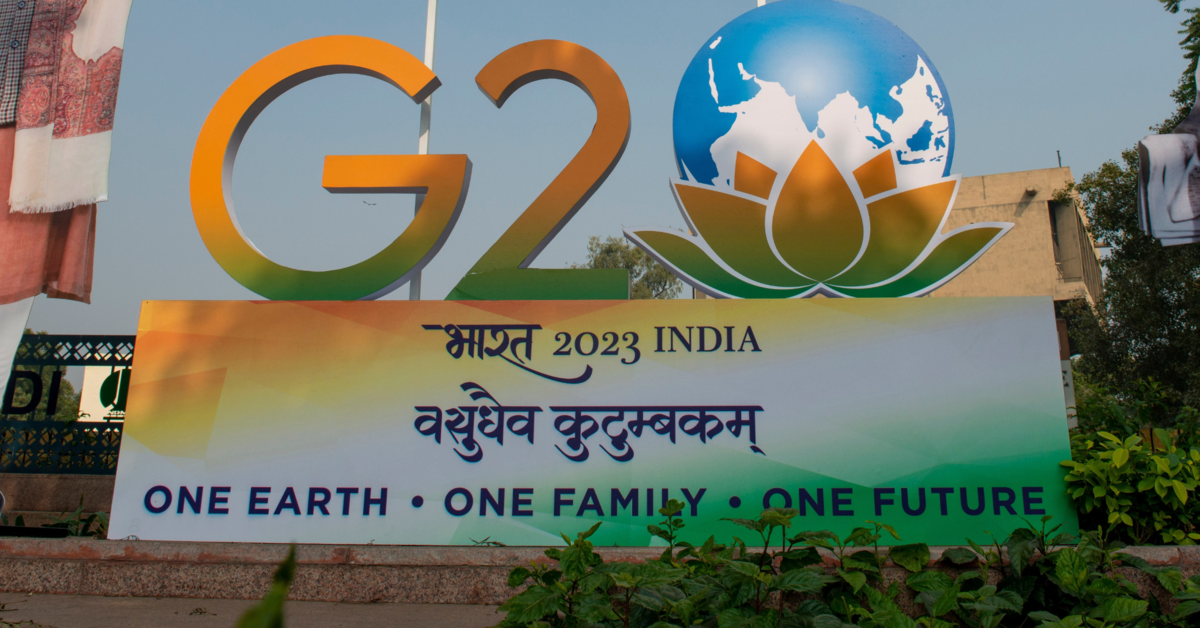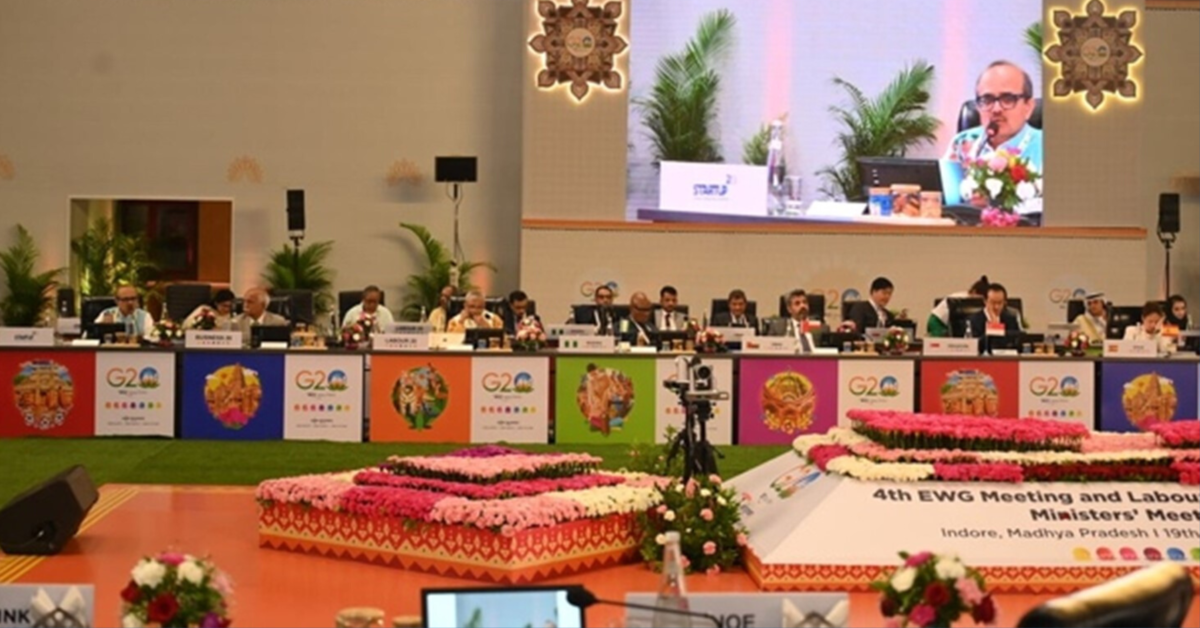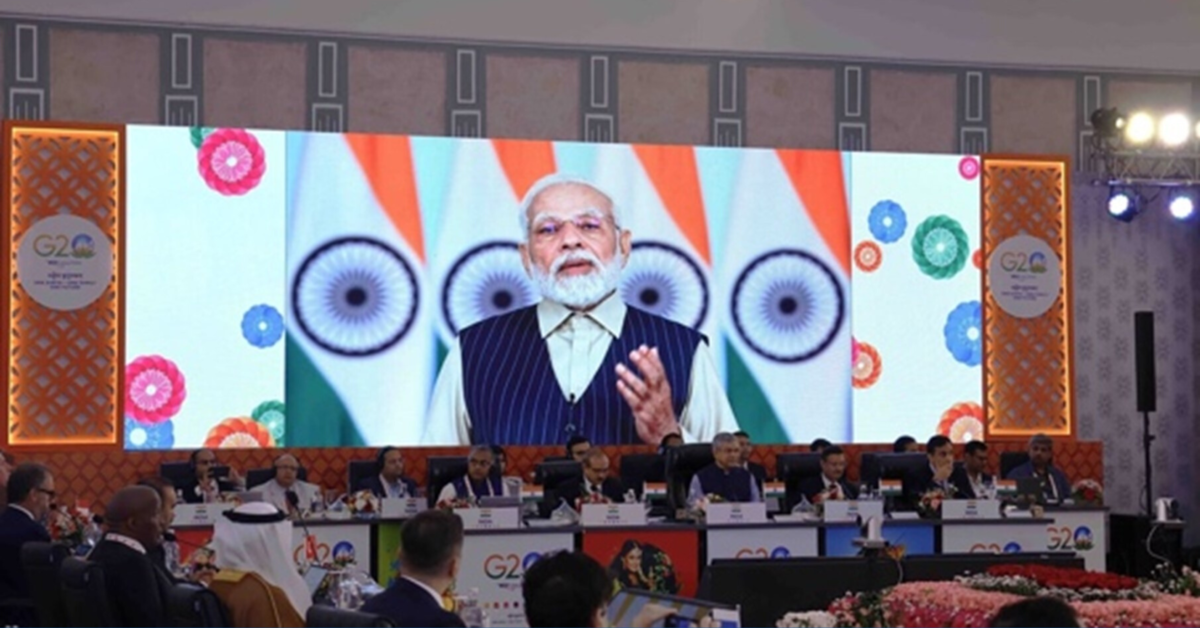B20 India Summit 2023 Highlights
At A Glance
Top business minds and policymakers from across the world gathered in New Delhi to exchange ideas and forge partnerships at the Business 20 (B20) Summit held August 25–27. Over the course of three days, the summit, which was attended by over 1,500 delegates, including CEOs and industry leaders, from about 55 countries, convened high-quality discussions and deliberations around the theme of B20 India, “R.A.I.S.E—Responsible, Accelerated, Innovative, Sustainable and Equitable Businesses.”
B20 is the official dialogue forum for the Group of 20 (G20) with the global business community. The forum is tasked with delivering concrete actionable policy recommendations to stimulate economic growth and development among member countries.
The B20 delivered over 50 recommendations and 170 policy actions to the G20 Presidency in the B20 Communiqué, covering areas such as Tech in Trade, Digital Public Infrastructure, Net Zero Transition, and Bridging the Financing Gap of SDGs.
The B20 proposed three initiatives to promote the future readiness of businesses, including (1) establishing the B20 Global Institute to provide continuity for successive B20 engagements, (2) fast-tracking financial support for decarbonization in the Global South, and (3) establishing the Global SDG Acceleration Fund to support public resources with private capital.
India handed over the B20 Presidency to Brazil.
B20 Communiqué
The B20 officially conveyed its final recommendations to the G20 Presidency at the B20 Summit. B20 India Chair N. Chandrasekaran presented the Communiqué to G20 Sherpa Amitabh Kant. The Communiqué is a compilation of 54 recommendations and 172 policy actions prepared by the members of the seven Task Forces and two Action Councils led by their respective chairs and co-chairs. The members were drawn from 50 different industries and represented 30 countries.
The seven Task Forces are:
- Digital Transformation (Chair: N. Chandrasekaran)
- Financing for Global Economic Recovery (Chair: Uday Kotak)
- Inclusive GVCs for Resilient Global Trade and Investment (Chair: Mallika Srinivasan)
- Financial Inclusion for Economic Empowerment (Chair: Dinesh Kumar Khara)
- Tech Innovation and R&D (Chair: Kris Gopalakrishnan)
- Energy Climate Change and Resource Efficiency (Chair: Sajjan Jindal)
- Future of Work Skilling, and Mobility (Chair: Shobana Kamineni).
The two Action Councils on African Economic Integration, which also contributed to the official Communiqué, are:
- An Agenda for Global Business (Chair: Sunil Bharti Mittal)
- ESG in Business (Chair: Sanjiv Puri)
Some of the notable policy recommendations proposed to the G20 Leadership in the Communiqué include:
- Tech in Trade: This is the first-time tech in trade has been explored by the B20. It has recommended policy actions for the G20 to diversify and advance services trade by adoption of technology in trade to improve operational efficiency.
- Digital Public Infrastructure: The B20 Task Force on Financial Inclusion for Economic Empowerment has suggested policy actions to promote digitization and encourage development of DPI with safeguards for seamless delivery of public services.
- Data Governance: The Digital Transformation Task Force has recommended institutionalizing a global body with a mandate of harmonizing and advocating cybersecurity standards and bringing in a greater degree of multilateral cooperation for shared goals of cyber action.
- Digital Virtual Lab & Library: The Task Force on Tech, Innovation and R&D has recommended creating a G20 Technology, Innovation and R&D knowledge exchange (along the lines of Wikipedia/GitHub) to share open-source content on research and innovations.
- Net Zero Transition: The G20 should accelerate development and commercialization of clean energy technologies through coordinated policies and expanded pipeline of clean energy projects. This has been recommended by the Energy, Climate Change and Resource Efficiency Task Force with an aim to address increasing greenhouse gas (GHG) emissions and intensifying impacts of climate change.
- Technology-driven Framework for Skills: The Future of Work, Skilling and Mobility Task Force has proposed building skills through a technology-driven framework to meet automation and AI skill demands. Proposals to reduce barriers to cross-border mobility, including through a universal labor information management system, have also been recommended.
- Bridging the Financing Gap of SDGs: The Financing Global Economic Recovery Task Force has proposed an action plan for the inclusion agenda to ensure that least developed countries, small enterprises, and youth are integrated into trade, digitalization, and growth. The Task Force has also recommended measures to improve inclusion of women across areas such as skill development and entrepreneurship, as well as enabling access to finance and digital literacy.
- African Union in G20: The Action Council on African Economic Integration has proposed economic integration of Africa with G20 through strengthening human capital, making agriculture more productive, as well as enabling private sector investments and energy access, trade facilitation, and physical and digital connectivity.
Major Initiatives Announced by the B20
B20 India has proposed three transformational initiatives to action on an ongoing basis for future readiness of business and for meeting pressing global challenges. B20 India Chair N. Chandrasekaran, in his opening remarks at the plenary session on B20 India priorities and recommendations, made these announcements:
- B20 Global Institute: B20 India proposed eto establish a Global Institute with the objective to provide continuity to the successive B20 engagements. It will act as a change agent, knowledge base, thought leader, and think tank. The Institute will ensure that the recommendations of B20 India’s Task Forces & Action Councils are implemented and carried forward.
- Financing Decarbonization: B20 India aims to fast-track financial support for decarbonization in the Global South. The initiative will build upon B20 Indonesia’s work by aligning sectoral decarbonization pathways and will aim at establishing mechanisms for financing, technology support, and knowledge transfer to support regulations aimed at reducing emissions.
- Global SDG Acceleration Fund (GSAF): The fund will be a private sector initiative to support public resources with capital, with the objective to speed up projects to achieve 2030 SDG targets. B20 India has proposed the GSAF as a pure credit enhancement fund, which will help bridge the financing gap across developed and developing economies.
Address by the Prime Minister of India
A special valedictory session on the final day of the summit was addressed by Mr. Narendra Modi, Prime Minister of India. Expressing happiness that B20 has emerged as a robust platform, PM Modi stressed the need to focus on sustainability. He asked global businesses to move forward on this, terming sustainability an opportunity as well as a business model. He also mentioned the circular economy and green energy and cited India’s approach of taking the world along, visible in initiatives like the International Solar Alliance. The Prime Minister also spoke about adapting life and business to the environment and said India was preparing a framework of green credit for business, which emphasizes planet positive actions. He urged all the global business stalwarts present at the summit to join hands and make it a global movement.
B20 India Hands Over Presidency to Brazil
The B20 Summit marked the end of India’s term as Chair of the engagement platform for G20 businesses. B20 India Chair N. Chandrasekaran handed over the Presidency to the next G20 host nation, Brazil, at a special ceremony during the summit. The baton was handed over to Rafael Lucchesi, Director General of SENAI (National Service for Industrial Training), the largest private network of industry-focused technical and vocational education, technological support and innovation in Latin America. SENAI will be the B20 Secretariat for 2024, during the Brazilian G20 Presidency, and will be the point of contact for the platform’s activities.
Edelman Global Advisory (EGA) provides tailored government affairs and business advisory services to companies, institutions, organizations, and governments seeking to navigate today’s changing geopolitical and economic landscape. Headquartered in Washington, DC, we have 67 offices across 25 countries in six markets: the US and Canada, APAC, MENA, Europe, Latin America, and India. The India EGA team is comprised of 10 public affairs experts, including senior industry professionals, researchers, lawyers, and former journalists. We have access to an extended group of advisors from civil service, media, and NGO circles who help us navigate the vast and complex stakeholder universe in India and we are backed by the Edelman network of 250+ India-based communicators with specialties in media, digital, creative, and content.
To learn more about the G20 India Presidency, please visit edelmanglobaladvisory.com, or reach out to Anand.Patel@EdelmanEGA.com.



